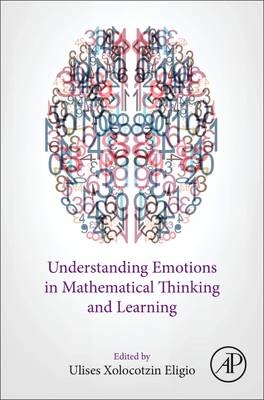
Understanding Emotions in Mathematical Thinking and Learning
Academic Press Inc (Verlag)
978-0-12-802218-4 (ISBN)
Ulises Xolocotzin is a faculty member in the Mathematics Education Department at the Centre for Research and Advanced Studies of the National Polytechnic Institute (Cinvestav-IPN). He completed his undergraduate studies in Psychology, and an MSc in Educational Psychology, at the National Autonomous University of Mexico (UNAM). Following this, he obtained a PhD in Psychology at the Learning Sciences Research Institute in the University of Nottingham. After postdoctoral positions at the University of Bristol and Cinvestav, he was a full-time researcher in the Education and University Research Institute (IISUE) at UNAM. His work focuses on the psychology of mathematics education, with a special interest in how emotion relates to cognition during mathematical activity.
PART I INTRODUCTION: AN OVERVIEW OF THE FIELD 1. An Overview of the Growth and Trends of Current Research on Emotions and Mathematics 2. Appraising Emotion in Mathematical Knowledge: Reflections on Methodology
PART II COGNITION AND EMOTION IN MATHEMATICAL ACTIVITY 3. Being in Control 4. Epistemic States of Convincement: A Conceptualization from the Practice of Mathematicians and Neurobiology 5. The Impact of Anxiety and Working Memory on Algebraic Reasoning
PART III EMOTIONS IN THE LEARNING AND TEACHNING OF MATHEMATICS PART IIIA LEARNERS IN DIFFERENT EDUCATIONAL LEVELS 6. Students’ Emotional Experiences Learning Mathematics in Canadian Schools 7. "I did Use to Like Maths…": Emotional Changes Towards Mathematics During Secondary School Education 8. When Being Good at Math Is Not Enough: How Students’ Beliefs About the Nature of Mathematics Impact Decisions to Pursue Optional Math Education
PART IIIB LEARNERS WITH MATHEMATICAL DIFFICULTIES 9. Special Needs in Mathematics Classrooms: Relationships with Others 10. The Construct Mathematical Resilience
PART IIIC LEARNERS OUT OF THE SCHOOL 11. The Emotions Experienced While Learning Mathematics at Home 12. Parents’ and Children’s Mathematics Anxiety
PART IIID MATHEMATICS TEACHERS 13. ‘I Hate Maths’: Changing Primary School Teachers’ Relationship with Mathematics 14. Using Students’ Emotional Experiences to Guide Task Design in Mathematics Content Courses
PART IV THEORETICAL ADVANCES 15. Digging Beneath Dual Systems Theory and the Bicameral Brain: Abductions About the Human Psyche from Experience in Mathematical Problem Solving 16. On the Irreducibility of Acting, Emoting, and Thinking: A Societal-Historical Approach to Affect in Mathematical Activity 17. Emotional Orientations and Somatic Markers: Expertise and Decision-Making in the Mathematics Classroom
| Erscheinungsdatum | 25.05.2017 |
|---|---|
| Verlagsort | San Diego |
| Sprache | englisch |
| Maße | 152 x 229 mm |
| Gewicht | 880 g |
| Themenwelt | Geisteswissenschaften ► Psychologie ► Allgemeine Psychologie |
| Geisteswissenschaften ► Psychologie ► Verhaltenstherapie | |
| ISBN-10 | 0-12-802218-3 / 0128022183 |
| ISBN-13 | 978-0-12-802218-4 / 9780128022184 |
| Zustand | Neuware |
| Haben Sie eine Frage zum Produkt? |
aus dem Bereich


